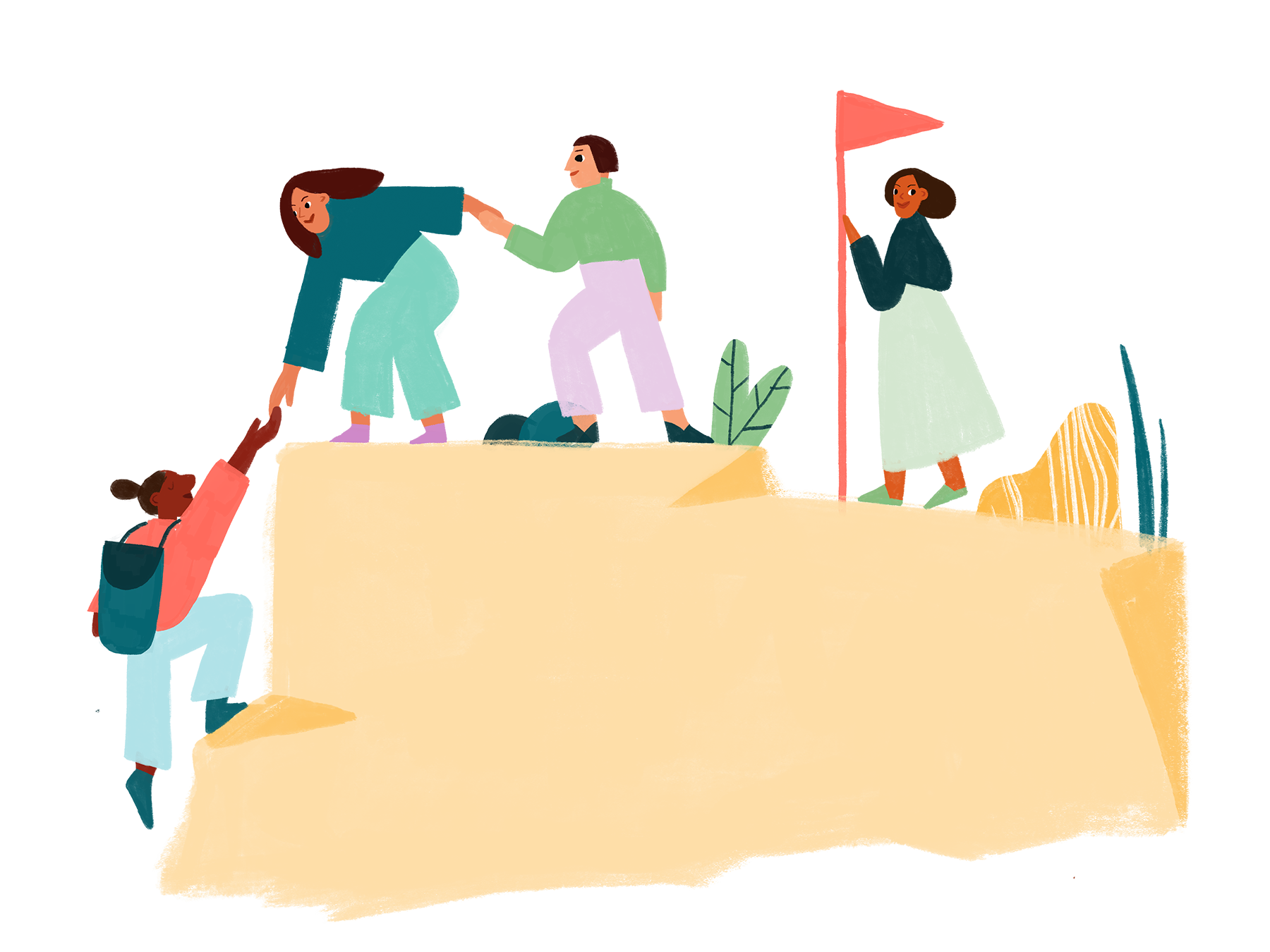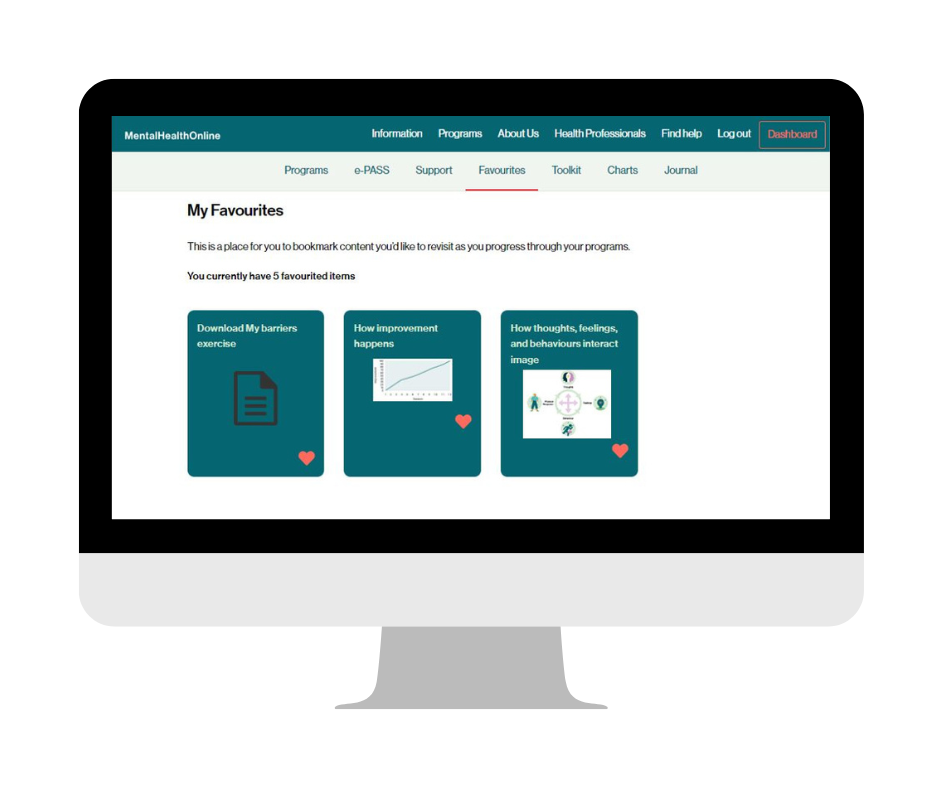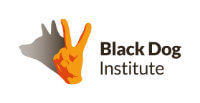This month we are taking a closer look at Mental Health Online, an internet-based treatment clinic for people with mental health difficulties. They offer a range of expert programs, information and resources to help individuals manage their own mental wellbeing.
Mental Health Online has been providing online support and treatment since 2009, and has recently updated their website to help support individuals and health professionals access the service with ease.

“We are so pleased to launch the Mental Health Online website on a new platform. We’ve kept all the resources and features our visitors and clients benefit from, but with a much more personalised, easy to navigate, and intuitive experience. We have some exciting new projects planned to make the best use of our new platform to continue to improve both the resources we offer and the experience of accessing these.”
About Mental Health Online

Mental Health Online is an initiative of Swinburne University’s National eTherapy Centre (NeTC) providing comprehensive and effective online support for Australians experiencing mental distress.
Their programs and online resources aim to support users to understand and address their needs through:
- High Quality Information and resources to help users understand mental health difficulties and treatments.
- Comprehensive online psychological assessment (e-Pass) to help assess the type and severity of difficulties being experienced. e-Pass screens for 21 disorders and upon completion provides a feedback report summarising diagnoses/clinical problems and their severity, and treatment recommendations.
- Online evidence-based treatment programs including optional access to eTherapists to support users through the treatment programs.
Mental Health Online also offer a VR Mindfulness Experience to all registrants. Place provides an alternative way of learning mindfulness, utilising immersive nature environments in a series of virtual reality (VR) mindfulness practices.
Mental Health Online’s Programs
After completing an online assessment, consumers can register for free evidence-based treatment programs. Each program runs for 12 weeks, either independently or with regular support from a Mental Health Online therapist through emails and up to 4 live sessions via video or online chat. The therapist can help users tailor the program content to their specific situation, answer questions and support them to stay on track.
Mental Health Online offers programs for and range of mental health concerns including:
Learn and implement skills and strategies that help manage depression and improve overall mental health and wellbeing. Includes information about depression and skills/strategies to help; identify symptoms, use activity to improve mood, discover and challenge unhelpful thoughts, boost wellbeing by making lifestyle changes, and plan to maintain mental health gains after completing the course.
Learn and implement skills and strategies that help manage social anxiety and improve overall mental health and wellbeing. Provides information about social anxiety and skills/strategies to help; identify and monitor symptoms, learn relaxation and breathing techniques to reduce symptoms, discover and challenge unhelpful thoughts, boost wellbeing and make lifestyle changes, face feared social situations, and plan to maintain mental health gains after the course.
Help manage the symptoms of depression and anxiety at the same time. Provides useful information and skills to help manage symptoms and alleviate distress.
Understand and manage symptoms of post-traumatic stress disorder and how to change the unhelpful thoughts and beliefs maintaining PTSD. Provides information about PTSD and why it develops, and skills/strategies to help; identify symptoms, learn relaxation techniques, gain control of physical reactions, change unhelpful thoughts and beliefs, and plan to maintain mental health gains after the course.
Help manage panic and agoraphobia by increasing understanding of panic attacks and panic disorder and learn skills and strategies useful for managing panic. Includes information about Panic disorder without agoraphobia, and skills/strategies to help; identify symptoms, self-monitor symptoms and mood, gain control of physical reactions, learn how to cope with and reduce panic attacks, learn relaxation techniques, and make lifestyle changes to improve wellbeing.
Understand more about obsessive compulsive disorder (OCD) and learn strategies to better manage OCD. Learn a range of techniques to help change behaviour and thinking styles and begin improving their management of OCD. Provides information about OCD and skills/strategies to help; improve understanding of OCD, learn practical techniques to manage anxiety in OCD, discover ways to manage intrusive thoughts, manage responses through guided exposure, and learn how to maintain the gains from the course.
Anxiety and Worry Online program
Understand the nature of anxiety and worry, and learn the skills to help manage anxiety and improve overall mental health and wellbeing. Provides information about anxiety and skills/strategies to help; understand and identify anxiety and worry, monitor and reduce symptoms, gain control of physical reactions, identify and replace unhelpful beliefs and ways of thinking, learn problem-solving techniques, and make lifestyle changes to improve wellbeing.
What has changed with the new site?
Some of the new features to look out for are:
- A fresh look and more user-friendly layout
- Improved progress tracking, including keeping all your progress if you change programs
- A brand new healthcare professionals hub, with a series of resources just for healthcare professionals
- A brand new program, the Depression-Anxiety program, to understand and manage symptoms of depression and anxiety together
Who is Mental Health Online for?
Mental Health Online’s programs are available to Australians over the age of 18 who may be experiencing mental health difficulties.
How can Health Professionals use Mental Health Online?

Health Professionals can access the full suite of Mental Health Online programs for free. They can use the resources to:
- Support understanding and delivery of structured CBT to clients.
- Promote as a resource to clients with a mental health concern.
- Use content, worksheets or activities from Mental Health Online programs to augment existing practice, such as for homework or psychoeducation.
- Refer clients for support while waiting for access to a service or upon discharge from a service.
Is there a cost to use Mental Health Online?
All of Mental Health Online’s services and information are free to access, including the online assessment and self-help or therapist-assisted programs.
How to access Mental Health Online
Prior to utilising the online assessment and treatment services, users are required to register and create an account at https://www.mentalhealthonline.org.au/. To register for an account, users require a valid email address and a unique password.
Users can sign up for a program by completing the e-Pass self-assessment to help identify which program might be right for them, or self a program and the therapist can assist.
To register for therapist-assisted programs users must provide their contact details and the contact details of their General Practitioner.
After registration Mental Health Online arranges a brief 20-30 minute confidential telephone conversation to understand users’ current mental health concerns and circumstances, and provide guidance on treatment options or whether another service would be more suitable.
Mental Health Online Research and Evaluation
All of the programs available on Mental Health Online are based on Cognitive Behavioural Therapy (CBT) and have been developed by psychologists and researchers from the National eTherapy Centre.
Before a program is made generally available on Mental Health Online, its clinical effectiveness and ease of use is tested. Only programs with proven efficacy are then made available to all consumers. Programs that are new to the site are initially only offered to clients who are willing to participate in a research study and who are aware of the unproven effectiveness of the treatment.





